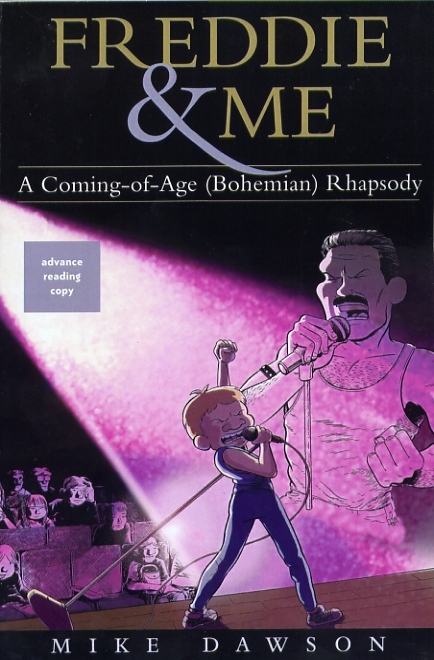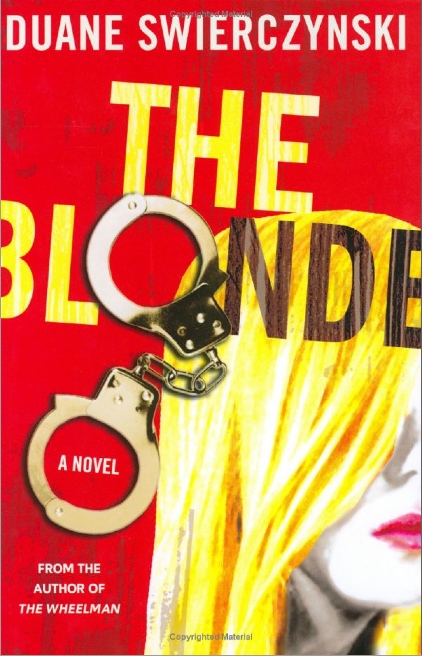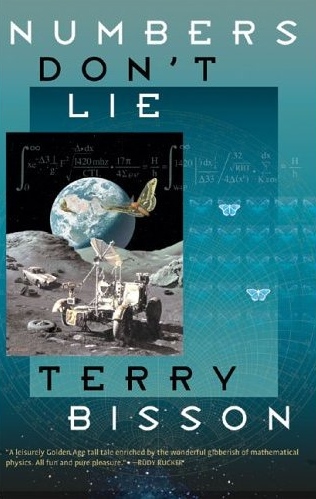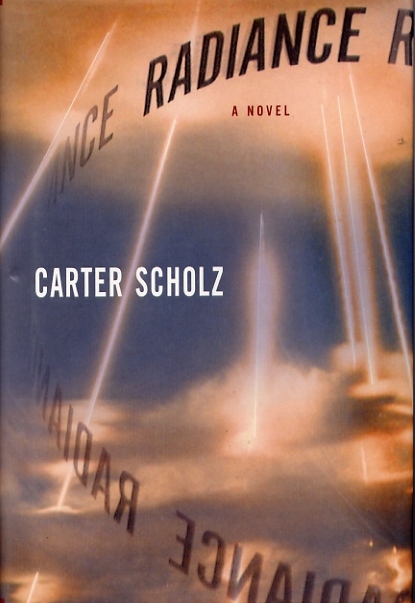|
|
|
|
This Just In...News
From The Agony Column
|
| |
|
02-29-08: Mike Dawson Rhapsodizes 'Freddie & Me' ; Agony Column Podcast
News Report : A Conversation With Bookseller Joyce Meskis
|
Coming of Age
With Queen
|
|
History
catches up with us all.
|
I have to confess – there
was a time when I wrote a song about being in a Queen imitation band.
Of course, I wasn't in a Queen imitation band. I had two projects at the
time, a sort-of Eurhythmics / Laurie Anderson deal, Pets
Gone Wild, and an anarchic mess, The Tweezerhead Rebellion. But I did
write the song, so I can't claim to be immune to the charms of the iconic
band. I also can't claim to be a big fan during their heyday; they were so
popular when I was in college they were literally unavoidable. But now, like
so much music that used to seem so au courant, they've become historical
narrative.
Queen has also become memoir fodder for Mike Dawson in his
graphic novel 'Freddy & Me' (Bloomsbury / Macmillan ; May 27, 2008 ;
$19.95). I have to admit, this book was a tough sell for me. Something about
an autobio via Queen just set my teeth conceptually on edge. But like many
books actually reading the damn thing made a big difference. 'Freddy & Me'
is just utterly charming, a straightforward look at growing up with a famous
rock band for a sort of virtual friend. There's a rough-hewn sweetness to
this book that I suspect will take a lot of readers by surprise.
Covering 1975 through 2008, 'Freddy & Me' is a great vision of middle-class
life in the last part of the previous century. Dawson, who writes and illustrates
the book, draws himself as a goofy-looking, thick-faced Brit. We get his
UK childhood, his teen years in a Jersey high-school, and the twenty/thirty-something
years of the 21st century. Raw honesty compliments a generous vision. It's
not that Dawson lives a charmed life; shit happens, and it ain't all good.
But Dawson's got a hardscrabble winner attitude that includes George Michael,
in case you were feeling a lack of him of late.
Dawson's book is a breezy read but quietly affecting. He quickly gets on
your good side and stays there for the duration. This is not to say that
there aren't some hurdles you have to overcome. You have to be ready to read
a graphic memoir, though hopefully Harvey Pekar and many, many others have
paved the way for you. You have to be able to set aside, really, any feelings,
good or bad, you have about the band Queen. Dawson's going to handle those
for you. And you have to be willing to let a graphic novel charm you. That's
the key, and frankly, that's Dawson's greatest strength. Alas, you'll probably
have to shuffle over to wherever they stash the graphic novels for adults
in your bookstore, unless they file it as a kids book, which might not be
the case. In a perfect world, you'd see a pile of these books come the end
of May, on a table at your bookstore. Coincidentally, a certain song would
be playing in the background. Cue the audio.
|
Agony Column
Podcast News Report : A Conversation With Bookseller Joyce Meskis
: Tattered Cover
I'm finishing off
the week with another bookstore owner interview; this time, motivated
by Christopher Moore, who mentioned The
Tattered Cover in the general vicinity of our more recent chat
at the Capitola Book Café. For some reason, my ears perked up,
and I paid attention. It didn't take long to find them on the Internet;
theyre using the Booksense Website engine to power their three
stores. You
can hear my conversation with Joyce Meskis from this
link, and find out why you should look them up on the web even
if you can't get into the store. What makes people sell books in a
climate and culture that seem to discourage this? We're finding out,
one bookstore at a time!
|
| |
|
02-28-08 : Terry D'Auray Reviews 'The Blonde' by Duane Swierczynski ; Agony
Column Podcast News Report : Carter Scholz at SF in SF
|
Sarcasm and
Bloody Mayhem
If these sound like
your cuppa, then chances are you're going to like 'The Blonde' by Duane
Swierczynski as much as reviewer Terry D'Auray did. There
seems to be a level of entertainingly over-the-top violence in this
book, and that's not necessarily Terry's cuppa. When it is there, and
she likes it, you can bet that the writer is well worth watching. I
seem to remember way back in the before time when she read a little
book titled 'Caught
Stealing' by one Charlie Huston. We all know how he turned out,
and one can hope for a similar career path from Duane Swierczynski.
(I'm never going to even attempt to type that name; it's cut and paste
material.) You
can read Terry's review here. And you can prepare for your eventual
rendition on your time, and alas, on the public's dime. Well, maybe
more like a quadrillion dimes, but who's counting? And more importantly,
who's laughing now, eh?
|
Agony Column
Podcast News Report : Carter Scholz at SF in SF : "The Flight
to San Francisco"
Want to hear from
someone who is going to make you write him and demand he finish his
next book? Then proceed no further than
this MP3 interview with Carter Scholz from the most recent SF in SF
gathering last weekend. That quoted flight to San Francisco? Take
a stab at guessing the departure date. Then sit back and enjoy an all-too-brief
chat with the inimitable Mr. Scholz, who also talks about 'The
Nine Billion Names of God' arguably the most famous science fiction
story of all time, and his portrait of the man who claimed to have
written the computer program that generated the story. A rather mad
fellow, to be sure. And check your departure dates. Hope that they
dont become memorable.
|
| |
|
02-27-08: Lauren Groff Exhumes 'The Monsters of Templeton' ; Agony Column
Podcast News Report : Terry Bisson at SF in SF
|
What Lies Within
|
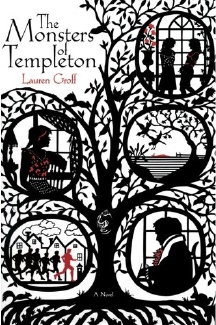
|
This
is your li(f)e.
|
It's easiest of
all to lie to yourself.
We all need comfort and re-assurance that we're on the right course, that
the life we're living is being lived well. If we're to wake up any one morning
without wishing for death, if we're to fall asleep at night without contemplating
suicide, we need to look ourselves in the eye and create stories about our
lives that make sense. We write our lives into memory each day, and most
of us are in that sense born fabulists, liars of the highest order.
When Willie Upton returns home to Templeton in the opening pages of 'The
Monsters of Templeton' (Voice / Hyperion ; February 22, 2008 ; $24.95) by Lauren
Groff, she's running away from some truths that will not bear close
examination. Her pregnancy. The incident with the plane. Possible manslaughter
charges.
She discovers she's running to the monster. The fifty-foot carcass is floating
in the lake, and that's the smallest of her worries. Willie Upton is about
to discover who her father is.
Groff's novel is told in gossipy first person prose. Will runs home to Vi,
her hippie mother, only to be handed a reason to peek through the lies and
learn her own heritage. She'll find a few skeletons, a ghost or two and truths
she'd rather not have learned. In the process a carefully built foundation
of lies will be thoughtfully deconstructed. Groff's story is a sort of modern
gothic mystery, set in a fictionalized version of Coopertown, once home to
James Fenimore Cooper. You know, Natty Bumppo territory. It's illustrated
with portraits of people who dont exist, and complemented by a corrected
genealogy of the narrator.
Unless she's lying, which is likely the case. 'The Monsters of Templeton'
are to a one all quite human, all accomplished liars, to themselves if not
others. Groff writes with a nicely understated sense of wry humor, keeping
things just light enough so that we dont feel as if we're trapped
in a room with a desperate and needy relative, or the friend of a friend
whom we wish we had never met. There's a fine literary line between immersion
and suffocation. Groff gives us an airline, even if the mixture coming down
the pipe gets a little rich and heady. Breathe the fumes of your life. It's
truth serum. Look in the mirror, now. Peel back the veneer of just one little
lie. It's not that easy, is it?
|
Agony Column
Podcast News Report : Terry Bisson at SF in SF : Novels are hard
|
|
...people
do, and with great skill.
|
Today's Agony Column
Podcast News report is a man-in-the-lobby interview with Terry
Bisson from SF in SF on
Saturday, February 23, 2008. He told me the story of how he came to
start the original version, which is still running at KGB in New York.
Terry's a great guy; a smart moderator, a brilliant writer and an engaging
host for SF in SF. Here's
a link to the MP3; and yes he is made of meat.
|
| |
|
02-26-08: Walter Jon Williams Explores 'Implied Spaces' ; Agony Column
Podcast News Report : Carter Scholz Reads at SF in SF'
|
Sword and Singularity
|
|
Hidden
messages, the next generation.
|
It's not just the
memories of reading books that linger. Sometimes conversations about
books linger as long the reading experience itself. Many of the trends
first observed in Walter Jon Williams' 'Hardwired'
have come to pass in what passes for reality these days. Oh sure, I
remember reading the book but with equal clarity, I remember a conversation
I had with a friend about the book in the living room of a beach bungalow
one afternoon before band practice. We both enjoyed the book, but had
different perceptions of the story based on our occupations. He was
a programmer, working on a database program that would calculate kill-count
from a space-based laser scenario. It was classified at the time (and
probably still is), so I didn't know the details, only that he had
a very cushy gubbermint-like job. I was battling it out in the trenches
as a Unix Systems Administrator working for a stock quote company and
our perspectives were of course rather different. We both loved the
heavy-metal feel, but I was more enamored of the vision of a distributed
network, while my friend was (in retrospect, for good reason) far more
fascinated with the Orbitals. We argued while we watched Doctor Who
and swilled beer before making primitive synthesizers do things they
weren't designed to do and yelling over the resulting chaos.
The world went to hell differently than either of us might have imagined,
but here we are in a new century and both quite pleased to find Walter Jon
Williams is still cranking out over-amped, mordantly funny post-cyberpunk,
post-singularity science fiction with 'Implied Spaces' (Night Shade Books
; April 11, 2008 ; $24.95). It's a nice short novel about a sword-slinger
in a future where kitsch'n'sync-tech has broken reality itself down into
bits an pieces that might remotely resemble the state of my checking account,
that is tiny particles separated by large spaces. Anticipating the coming
generations who will basically work till they die, Aristide is a semi-retired
computer scientist who slings a wormhole-sharpened sword and is accompanied
by a cat-avatar fronting for a big-ass (ie, planet-sized) computer. Somebody
is getting into the Implied Spaces and the results are likely to be dire
for reality itself. Better break out the banter. Best to greet The Big Swirly
with a big smile.
Williams knows he's treading thoroughly explored territory and he focuses
on style, keeps things smart and stays on point. One of the things that Night
Shade Books is doing particularly right is getting smaller novels out there,
and whether it's a matter of printing economics or brevity aesthetics, it
works. There are gems of absurdist SFnal vision on practically every page,
seemingly serious but seriously funny observations that jog a smile while
they boggle the mind. Compact, brainy and entertaining, 'Implied Spaces'
plays with genre and perhaps not fairly. But in fiction, everything's fair,
especially when Williams manages to write about glitches in reality without
creating glitches in the narrative.
Worthy of mention and the large image file (remember when that used to matter?)
is the cover art by Dan Dos Santos. It's slick and beautiful and just kitschy
enough to capture Williams' style. One is tempted to wonder if it is a steganographic
image; if not, one is pretty well advised to suggest that the next generation
of book cover images include steganographic data – like the first chapter
of the book? It sounds like something out of a story by Williams himself – an
optimistic vision of the future to be sure, if the implied space, so to speak,
includes reading.
|
Agony Column
Podcast News Report : Carter Scholz Reads at SF in SF : 'Radiance'
|
|
Gorgeous
cover with spaceship on this fiction-about-science novel.
|
Today's Agony Column
Podcast News Report is the first from the most recent night of SF
in SF. I have to say, the signs were not auspicious, but it turned
out to be a wonderful evening. My wife and I drove up in a pretty fierce
storm, only to find that the very large and important Chinese New Years'
Parade would be going directly in front of the Variety Children's Charity
Theater where the events are held. The upshot was that we ended up
parking five blocks and half a mile away, ferrying a significant amount
of equipment through the pouring rain, crowded sidewalks and blocked-off
streets. But a lot of people showed up, everybody had fun and the readings
by Carter Scholz and Paolo Bacigalupi were terrific. Here's
Carter Scholz in an MP3 reading from 'Radiance', which the shattered
remains of my tiny brain want to call 'Brilliance', because as you
will hear, it is – and funny as hell.
|
| |
|
02-25-08 : A 2008
Capitola Book Café Interview with Debra Klein
|
'Yoruba Bata Goes Global'
|
|
Anthropologist
Debra Klein. |
One of the great things
about signing up to essentially attend all the Capitola Book Café signings
to interview the authors is that I'm so consistently, shockingly, happily
surprised by what I find. I must
admit, I was a bit intimidated when I went to interview Debra
Klein.
Her book, 'Yoruba Bata Goes Global' (University of Chicago Press ; October
17,
2007 ; $18) – and no, I'm not going to try to reproduce the accents
over all the letters. 'Yoruba Bata Goes Global' is a careful and detailed
examination of a culture, religion and musical style that I'd never even
known to exist.
|

|
Drummers
and dancers take over the world. Much improvement follows!
|
But it's more than
that, and that's why its worth
your valuable time, especially if youre a science fiction writer.
Here's a book that examines what happens in reality when two cultures
come in contact and members of the more technologically (though not necessarily
ethically) advanced culture become "culture brokers." As Klein
tells the story, some go native, some stay outside the indigenous culture,
but all of them end up doing precisely what they had hoped not to do,
which is to change things from within simply by virtue of being having
a global economic power.
On the personal side the story is equally interesting, since originally
two married "culture brokers" showed up, one of whom went native.
Ullie Beier and Suzanne Wenger came to Nigeria, the home of the Yoruba
Bata movement, and Wenger decided to stay behind and eventually became
a priestess. Klein's tale is quite captivating and her examination of
this continuing clash of cultures is the stuff of many novels; but it's
the real deal. It's always a pleasure when life itself outstrips fiction.
You
can hear our conversation in the back office of the Capitola Book Café here. I managed to get Klein to not only describe the drums
she brought but to play them as well. She was totally engaging and very
entertaining.And in spite of my intimidation, Klein was a fantastic interview,
as much fun as the music she plays.
Get out your samplers!
|
| |
|
|

